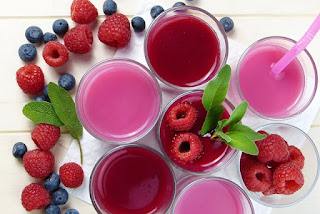Raw Food Diet Disadvantages
The Disadvantages of The Raw Food Diet
Raw food diets have disadvantages along with advantages. Whether one outweighs the other is debatable. It is very hard to debate facts and that is my intent with this post focused mostly on the negative effects of the diet.
A raw food diet has nutritional deficiencies like lack of B-12, low HDL cholesterol numbers, not enough nutrients like calcium or vitamin D to support good bone health, and low body weight due to lack of calories inside the diet (Livestrong). Iron and iodine are two nutrients lacking with this plan as well (Cleveland Clinic).
The diet weakens muscles due to lack of protein, almost 100% of the people experienced tooth erosion in one study, and another study found it to increase infertility in women with about 70% experiencing disruption with their menstrual cycle and a third developing amenorrhea (Petre).
The diet is restrictive, time consuming and puts people at a higher risk for food poisoning because of the raw uncooked food with high bacteria and viruses (Nast). By not cooking foods, eating this type of diet puts people at a higher risk for cancer, consuming toxins that harm the immune system, and eating raw celery sensitives the skin to absorb the harmful effects of ultraviolet radiation (Weil).
The raw food diet ranked #32 according to the 2022 U.S News and World Report for the best diets overall.
Strictly Eating Raw Food Is Bad
Maybe eating a strict raw food diet is not a great idea. Incorporating the diet in your meal planning part-time might be beneficial due to the numerous health benefits associated. The diet reduces cancer risk for different types of cancer, helps you lose weight fast, optimizes your heart, keeps blood sugar levels in check, and improves your gut health.
Fights Cancer and Increases Risk
Consuming raw foods as part of your dietary routine reduces cancer risk as well as increases the risk. It appears the diet reduces the risk for cancer a lot more than it puts people at risk for it.
Add Dietary Supplements and Safe Foods
Incorporating other safe foods into the raw food diet will provide the necessary nutrients for your body that a strict raw diet lacks. Adding calcium and vitamin D to your diet such as meat, fish, and milk sounds beneficial rather than leaving those nutrients out.
Using dietary supplements to nourish your body with vital nutrients is another good idea. Some contain genetically modified organisms (GMOs) which could supplement your body with nutrients but still bring harm to other areas of the body, especially over the long term. A 100% GMO free dietary supplement that includes protein, vitamin D, calcium, B-12, iron etc. definitely is the safer way to go in regard to dietary supplements.
Works Cited
Livestrong. “Dangers of a Raw Food Diet.” LIVESTRONG.COM, www.livestrong.com/article/347498-dangers-of-a-raw-food-diet/.
Petre, Alina. “How to Follow a Raw Vegan Diet: Benefits and Risks.” Healthline, Healthline Media, 3 Dec. 2018, www.healthline.com/nutrition/raw-vegan-diet.
Cleveland Clinic. “Raw Food Diet: Is It Healthier?” Health Essentials from Cleveland Clinic, 11 Jan. 2021, health.clevelandclinic.org/raw-food-diet-is-it-healthier/.
Nast, Condé. “Raw Food Diet: Its Health Benefits and Drawbacks.” GQ India, 5 Apr. 2022, www.gqindia.com/live-well/content/raw-food-diet-health-benefits-and-drawbacks. Accessed 30 Dec. 2022.
Weil, Dr Andrew. “The Raw Food Diet | Diets & Weight Loss | Andrew Weil, M.D.” DrWeil.com, 15 Feb. 2019, www.drweil.com/diet-nutrition/diets-weight-loss/raw-food-diet/.






Comments
Post a Comment